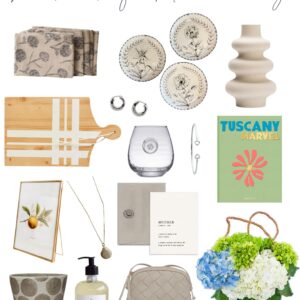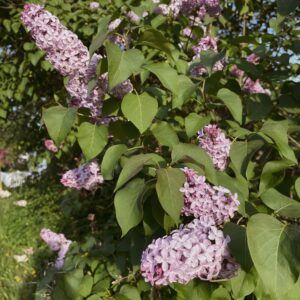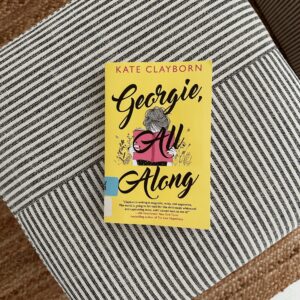Are you thinking of starting a garden this spring? When it comes to getting vegetables plants or flowers I always go to Ludema’s here in Grand Rapids, MI. I’ve been so happy with their plants and customer service. Since I’m getting ready to start my garden, I sent Ludema’s some gardening questions that I think you’ll find really helpful. If you’re starting a garden this spring, scroll down for some helpful tips and tricks! PS You can also find this article in The GR Guide Spring Magazine. A huge thank you to Ludema’s for your help with this article.

Vegetable Garden Tips
When should I start my vegetable garden?
You can start prepping your garden right now, now that the weather is warm. This is a great time to turn nutrient rich topsoil and manure into your gardens to make sure that they are ready for planting season.
You will not want to start planting your vegetables in the ground until the risk of frost at night is completely gone, which is usually mid-late May.
How often should I water my plants?
How often you water your plants really does depend on the type of soil that you have. If you have a more sandy soil, you may need to water more often. If your soil is more dense and holds moisture, you will need to water less. The best thing to do is to put your fingers into the soil to feel if it is damp or dry.
If it’s dry, water. If it’s slightly damp but the temperatures are going to be very hot (80+ degrees) that day, watering in the morning on damp soil will not hurt. If your soil is wet, do not water.
Remember that even though we might get rain, rain does not always penetrate deep enough into the soil to ensure that your vegetables are fully watered.
Shade vs. sun…what’s best?
For vegetables, you will want full sun. Sun will really help your vegetables produce the most!
How do I control the weeds in my garden?
You can control weeds by using a product such as Preen prior to planting. Although weeds are annoying, the best way to control them is simply to weed your garden and to make sure when you are pulling weeds out, you are getting the full root system.

What type of soil do you recommend? Should I also use fertilizer?
Rich soil with topsoil and manure is great for vegetables. Fertilizer is very helpful as well. With our growing season being so short in Michigan, fertilizer will help your plants produce great vegetables and fruit. At Ludemas, we have two types of fertilizer available: the first is for flowers and the second is for vegetables and Geraniums.
If you use a flower fertilizer on your vegetables to start off with, it will promote your plants to produce flowers, which in turn produce fruit/vegetables.
Once your plants start producing fruit/vegetables, switch to the vegetable fertilizer which will help your fruit and vegetables develop.
What vegetables should I plant?
You should plant the vegetables that you like to eat. If you cook with peppers and onions often…start there. If you want to try your hand at canning or freezing, try beans, corn, cucumbers (for pickles!), or tomatoes.
Get creative with your garden! Try an eggplant if you haven’t before or a watermelon or muskmelon…having a garden that produces food is so fulfilling!
What do you recommend for starting a salsa garden?
Starting a salsa garden, start with choosing the flavors that you like. For example, do you like a lot of heat or something more mild? Choosing your peppers first will set the tone for the amount of heat in your salsa. Choose tomatoes that are good for salsa or slicing. Add onions, cilantro and any other flavors you like to see! At Ludemas, all of our tomatoes and peppers are labeled very clearly so that you will know what flavors you will get and which ones will work best.
Flower Garden Tips
What are the easiest flowers to grow?
With basic growing knowledge about sun/shade preferences and being conscious about watering, most flowers are fairly easy to grow. If you struggle with regular watering, there are some annuals and perennials that are more drought tolerant but they will still need regular attention on really hot days.
I really enjoy growing Zinnias, tall varieties of Marigolds and Salvia because I feel they are fairly easy and they make wonderful cut flowers so you can pick yourself a bouquet or give one to a friend!

Should I plant annuals or perennials?
This is a great question! I like planting a mix of both. For instance, you can plant some beautiful rose bushes or Hydrangeas, which are perennials (that will come up every year) and then accent around them with annuals every year. This is a great way to always have some consistent color that will appear every year in your garden but you can change your selection of annuals year to year.
What plants work best in pots?
In Michigan, it does not work to put perennials in pots…it’s too cold during the winter for them to survive. Annuals work best in pots, and there are so many options! First, you need to know if your pots are going to be in sun or shade. Full sun is considered 6 or more hours of hot sunlight, which is usually the late morning – afternoon sun.
When you pick out plants for your pots, you should choose a tall element, a mid-height element and something that will cascade. For example, in my full sun planters, I love to use a bright, tropical Canna in the center, some Superpetunias and Verbena for fullness and Licorice Vine or Sweet Potato Vine to trail over the sides. This gives me color in every part of my planter.
If you have shade planters, you could do a fun, tall decorative grass in the center, colorful New Guinea Impatiens around the grass and Licorice Vine, Wire Vine or Sweet Potato Vine to trail over the sides.
How deep should I plant my flowers?
For annuals, you want the current soil that is on the plant to be level with the soil in your pots. You don’t want to go higher than that.
For tomato plants, to keep them sturdy, our grower does note that it’s okay to slightly mound the dirt around the base to keep the plant upright.

What soil is best and should I use fertilizer?
For your planters, you only want to use potting soil…never top soil. Top soil is too heavy inside planters or window boxes. You want to use a potting soil that is well-draining so that your annuals do not remain too wet all day long.
Yes, you should absolutely use fertilizer….especially because our growing season is so short. For full sun planters, you can fertilize 3-4 times a week if you would like (But be sure to do it at least once a week!). For shade planters, you can fertilize 1-2 times a week if you would like (at least once a week).
We suggest a fertilizer that you dissolve in water and pour on your plants. When you fertilize, you never want to fertilize if you accidentally forgot to water your planters…fertilizing them when they are super dried out will burn your plants. In this case, skip fertilizer that day and just water. When you do fertilize, use the fertilizer water as your water…not water first and then fertilizer or vice versa.
When I water or fertilize my planters or hanging baskets, I watch for the water to start running out of the bottom of the pot….this way I know that all of the roots of my plants have been watered or fertilized, which is key. By fertilizing, you will prevent your plants from becoming “stringy” half way through the summer when we are dealing with extra hot temperatures.
A huge thank you to Ludema’s for these helpful tips and tricks for starting a garden this spring! Be sure to visit Ludema’s this spring and summer for your garden.











Leave a Reply
You must be logged in to post a comment.